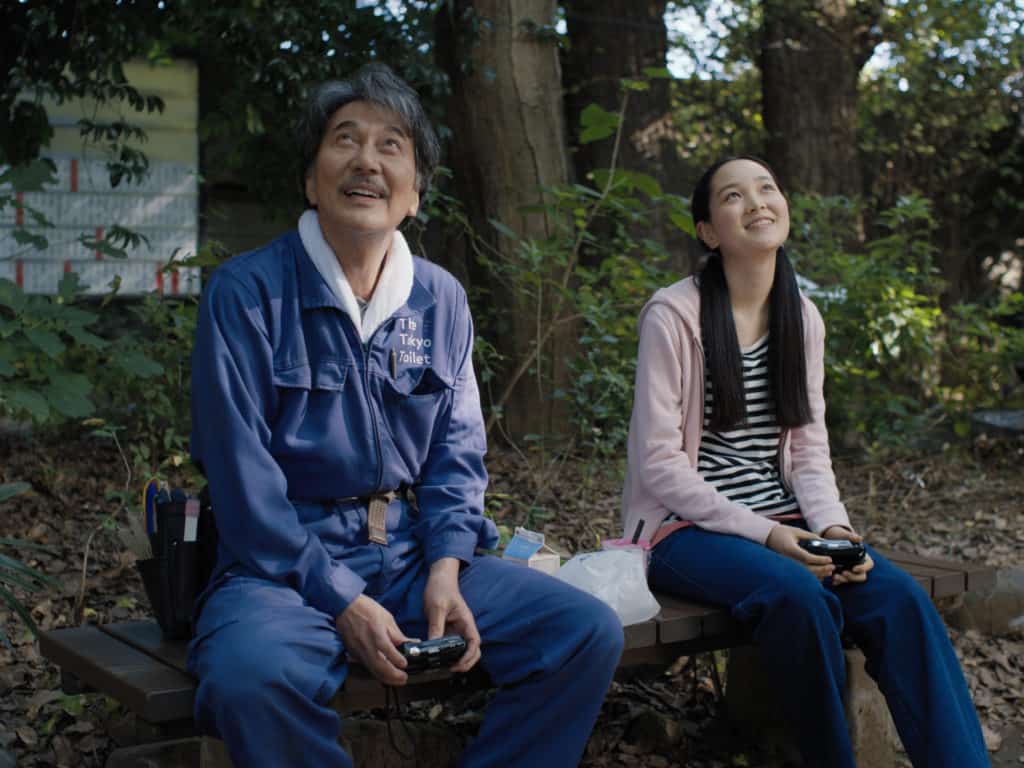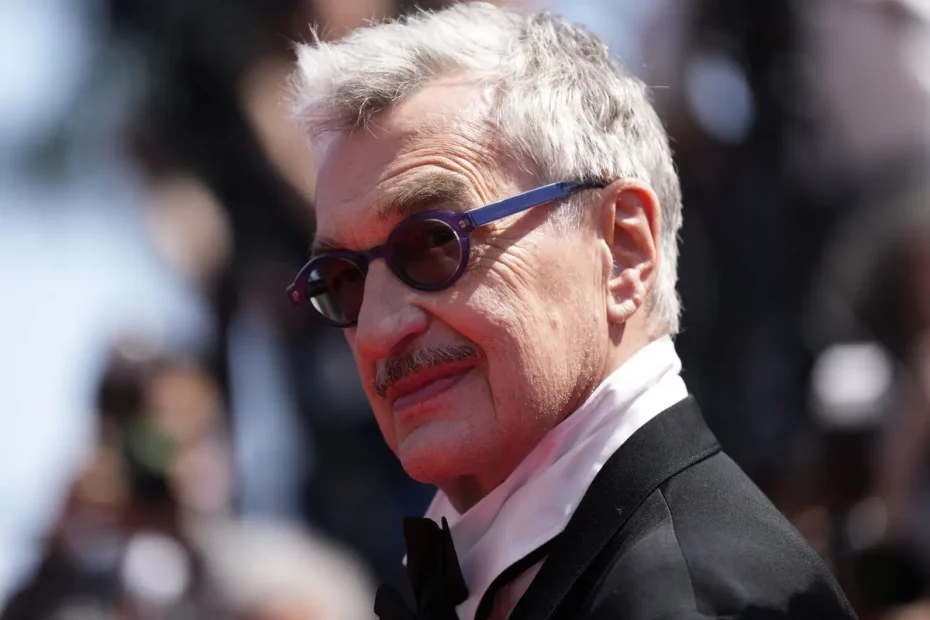Wim Wenders is no stranger to Cannes. Highlights of his visits there include the Palme D’Or for Paris, Texas, in 1984 and the screening of what is arguably his best film, Himmel über Berlin (Wings of Desire), in 1987. His career has been uneven since then, to say the least, and I wasn’t the only one surprised when the announcement came that he would present two films at Cannes this year. One documentary in 3-D called Anselm, and one fiction film in the competition, Perfect Days, starring Yakusho Kōji. While the documentary has had a long gestation period, the fiction feature, on the other hand, was done very quickly. It’s the director’s 13th film to premiere in Cannes.
Wenders actually had a connection to a third film. In the Cannes Classics section, Chambre 999 by Lubna Playoust was screened. In 1982, Wim Wenders asked 16 of his fellow directors to speak on the future of cinema, resulting in the film Chambre 666. Now, Playoust did the same with a bunch of directors, and the first one is Wenders. When one juxtaposes the films, one is struck by the difference between the directors now and then. In 666, Wenders talked to Godard, Antonioni, Fassbinder and others. In the new film, the perspectives come from Joachim Trier, Paolo Sorrentino, and Ruben Östlund. The earlier film obviously offers more food for thought, not least Antonioni’s part.

In Perfect Days, Kōji portrays Hirayama, who leads a simple life as a toilet cleaner in Tokyo. He is passionate about music and loves to take pictures of trees. We will follow him through his workdays, gradually learning more about his past. According to the programme notes, the film is “a deeply moving and poetic reflection on finding beauty in the everyday world around us.” That was not the film that everyone watched. Here is the verdict from Beatrice Loayza.
I guess one has to have seen the competition films this year to understand what a strong statement that is. She later said that she avoided some of the most predictably bad films in the section. Even though it’s not certain that it was “one of the worst things in competition”, it’s a fact that the film was quite bad. Surprisingly for such a modest film, it turned out to be polarising, with some critics believing that it was an unexpected masterpiece from a director they had already written off, whereas others reacted like Beatrice Loayza above. Presented on the penultimate day of the competition, the film seemed to reel in some critics suffering from Cannes fatigue.
Wim Wenders’s Perfect Days are far behind him.
Personally, I found the film insufferable and a chore to sit through. That was true of many films in the section this year, and I’m still not sure which one was the worst. When Wenders says that the reason for naming his protagonist Hirayama is to pay tribute to the main character in Ozu’s last film Samma no aji (1962), it is easy to roll your eyes. That the director of Tokyo-Ga (1985) is a major Ozu fan is no surprise, but that he would like to honour his legacy with such a lazy film as Perfect Days is just ludicrous.
One of the most glaring aspects of said laziness is the choice of music. Sure, the fact that Lou Reed’s Perfect Day would appear in the film was not shocking, if not very inventive. However, the inclusion of House of the Rising Sun (The Animals, not Grimms, alas), Sunny Afternoon, Brown Eyed Girl, and several other well-worn classics merely add to the weariness of the film. Yakusho Kōji. won the award for best actor, which is only one of many puzzling choices of this year’s jury. It was still far from the worst decision they came up with.

